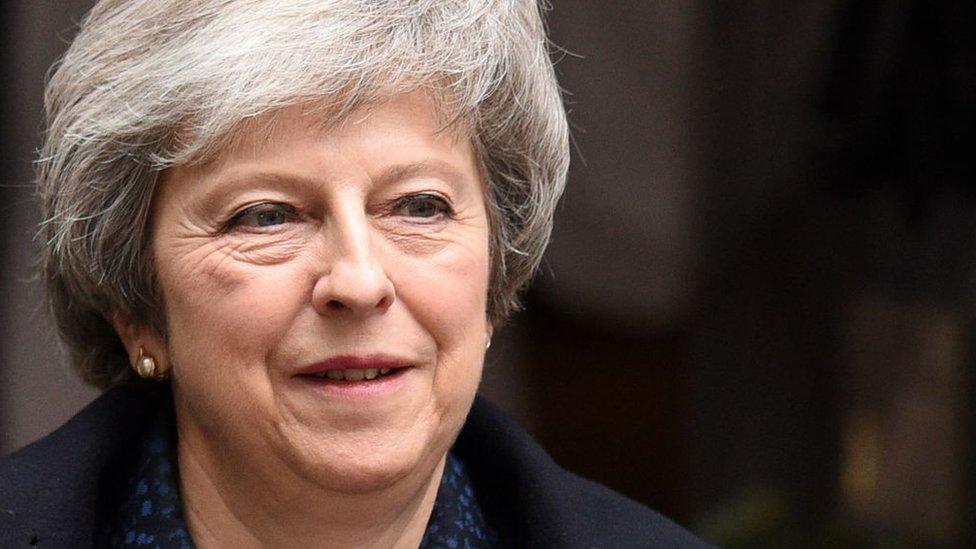Channel migrants: Border Force intercepts 254 on Sunday
- Published
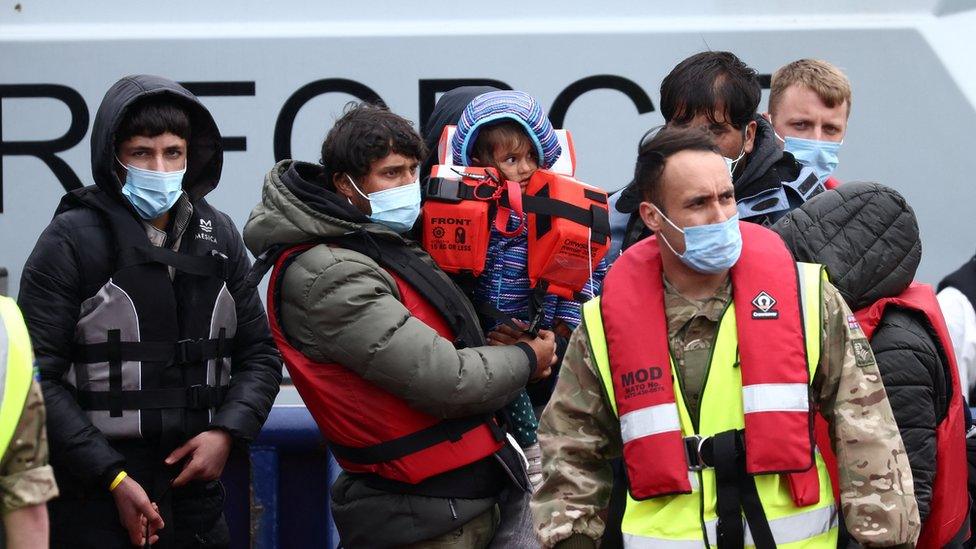
Migrants were escorted in Dover Harbour by military personnel after being rescued while crossing the English Channel on Sunday
The Border Force has intercepted several groups of migrants in the English Channel.
The Ministry of Defence (MoD) said it had detected seven boats carrying 254 migrants on Sunday. However, it said it did not believe any migrants arrived "on their own terms" in a small boat.
The government is addressing the issue by "cracking down on people smugglers", the MoD said.
It is believed to be the first time there have been crossings in 11 days.
Some commentators have suggested the prospect of asylum seekers getting sent to Rwanda was already acting as a deterrent - but the weather has been windy in the Channel for the past 11 days - which is likely to have had a greater effect.
Last month, Prime Minister Boris Johnson announced the MoD had taken command of the operational response to small boats crossings.
Responding to the latest interceptions, the MoD described the rise in "dangerous" crossings as unacceptable.
A spokesperson said: "Not only are they an overt abuse of our immigration laws but they also impact on the UK taxpayer, risk lives and our ability to help refugees come to the UK via safe and legal routes."
The decision follows a drastic rise in the number of small boat crossings, with more than 6,000 people have crossing so far this year.
The latest Home Office figures, external suggest 28,526 people made the crossing in 2021, up from 8,466 the year before.

At the scene
By Simon Jones, BBC South East, Dover
I watched in Dover this morning as around 30 migrants were brought to shore just after 9am. The group was largely made up of young men, relieved finally to be on British soil.
They were put straight on a bus and taken for processing at Manston in Kent.
Conditions in the Channel today are once again calm - just like yesterday, but before then it had been windy at sea for more than a week.
This is likely to explain the temporary halt in crossings at the end of last month rather than the deterrent effect of the government's plans to send some asylum seekers to Rwanda.

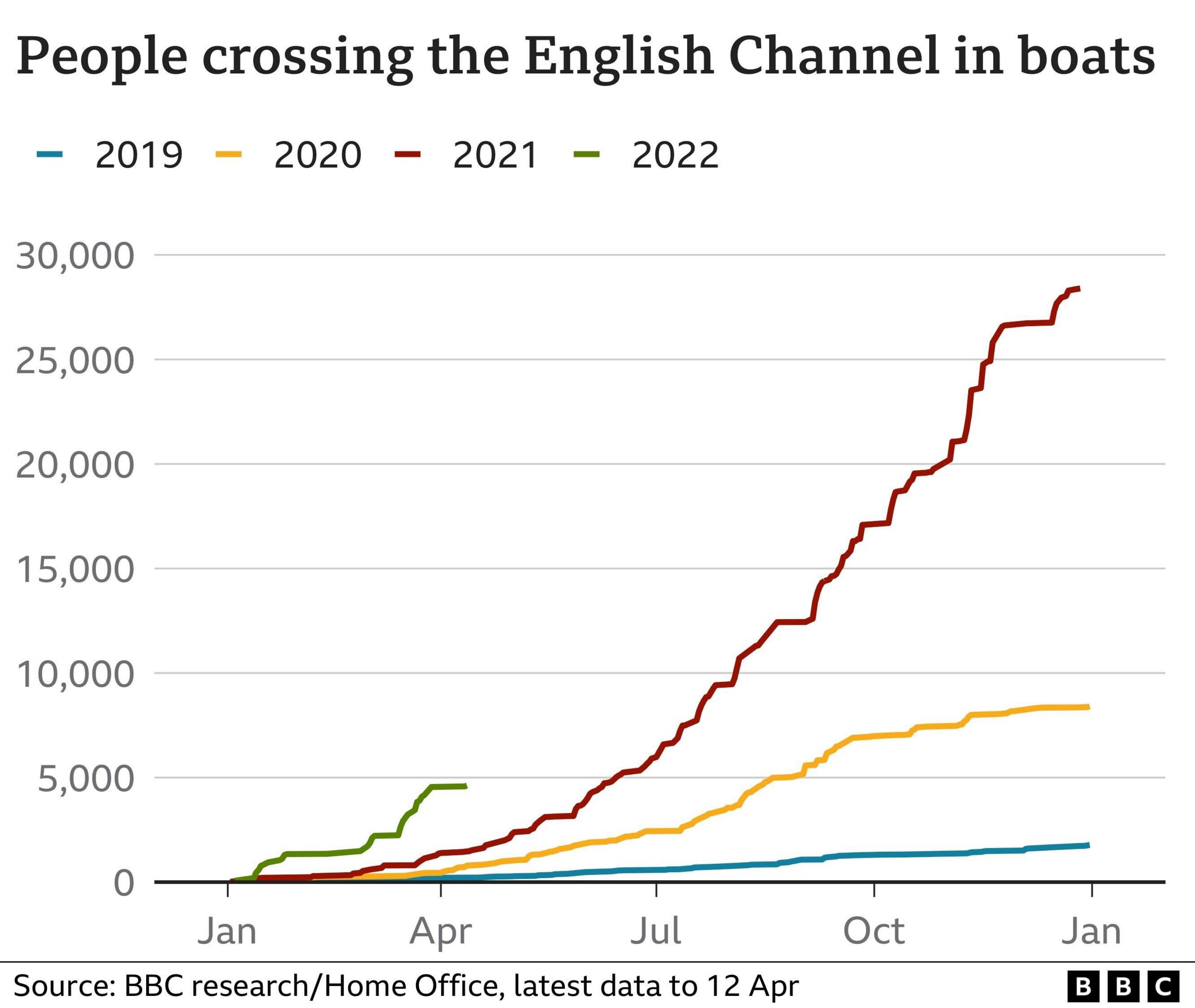
Attempts to deal with the issue by working with France and other European nations have proved unsuccessful so far, with the Home Office and French government in conflict over how best to respond to the crisis.
Late last year, Home Secretary Priti Patel warned that a failure to find a solution in Europe was putting lives at risk.
Her statement followed the deaths of 27 people whose boat sank as they headed from France to the UK - thought to be the biggest single loss of life in the Channel since data began to be collected in 2014.
Rwanda plans
At the same time as announcing it was giving operational control to the MoD, the government revealed plans to send some asylum seekers who cross the Channel to Rwanda on a one-way ticket.
Under the scheme, people deemed to have entered the UK unlawfully since 1 January could be flown there, where they will be allowed to apply for the right to settle in the east African country.
The government has said the policy would be a major blow to people smugglers and would stop people dying on dangerous routes to the UK.
But it has been criticised as cruel by opposition parties, charities and the Church of England.
More than 160 charities and campaign groups wrote an open letter urging the prime minister and Ms Patel to scrap the "shamefully cruel" policy.
Archbishop of Canterbury Justin Welby used his Easter Sunday sermon to raise what he said were "serious ethical questions" about the scheme, before adding it was "the opposite of the nature of God".
Home Secretary Priti Patel has hit back at critics of the government's plan to send asylum seekers to Rwanda, saying they have failed to offer solutions.
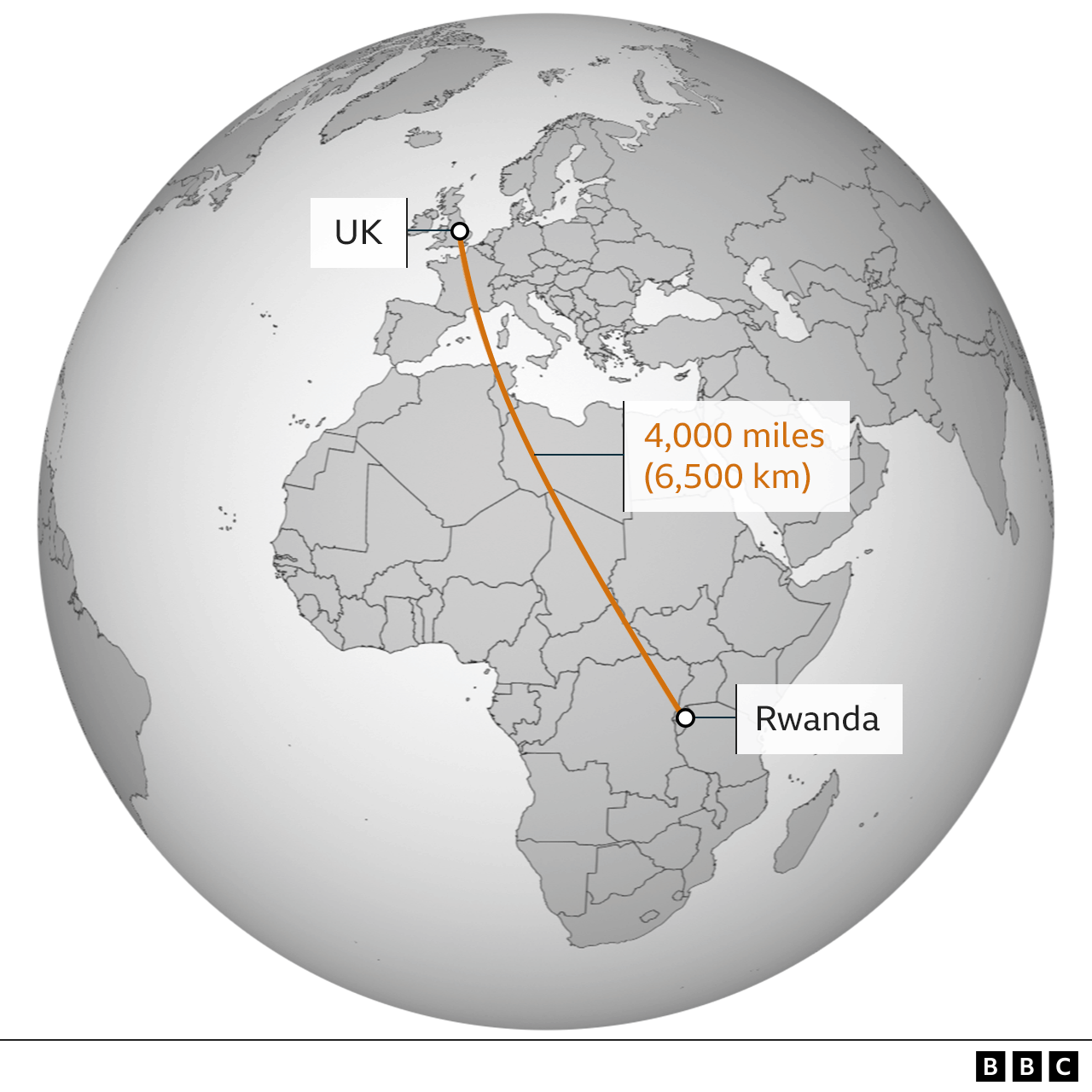
Meanwhile, questions have also been raised about the possible cost and efficacy of the scheme.
Former Prime Minister Theresa May, who also served as Home Secretary, said she did not support the policy due to her concerns over whether it met standards on "legality, practicality and efficacy".
Ms Patel defended the scheme being necessary to "break the business" model of people traffickers, prevent the loss of life and ensure "protection for those who are genuinely vulnerable".

Follow BBC South East on Facebook, external, on Twitter, external, and on Instagram, external. Send your story ideas to southeasttoday@bbc.co.uk.
- Published14 April 2022
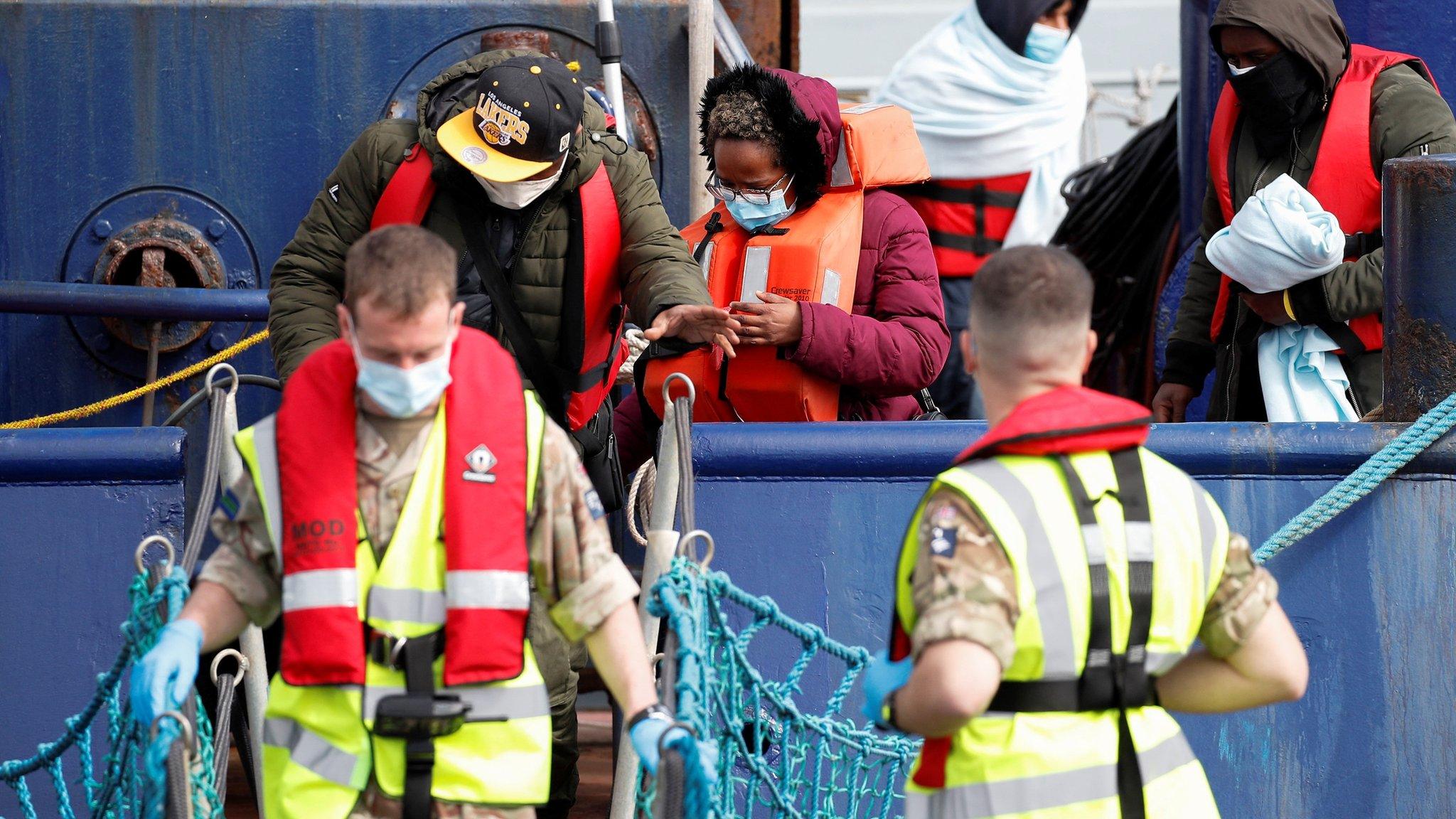
- Published14 April 2022
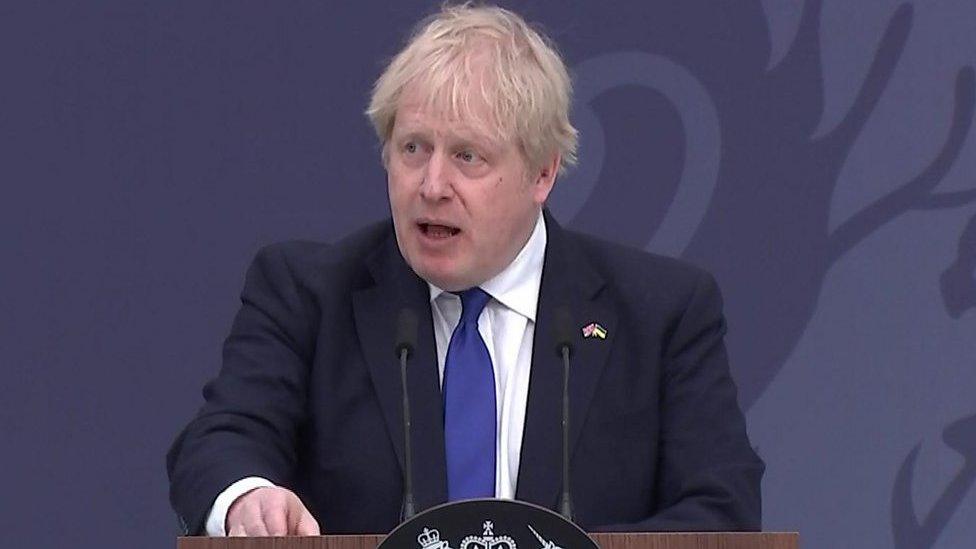
- Published14 April 2022
- Published19 April 2022
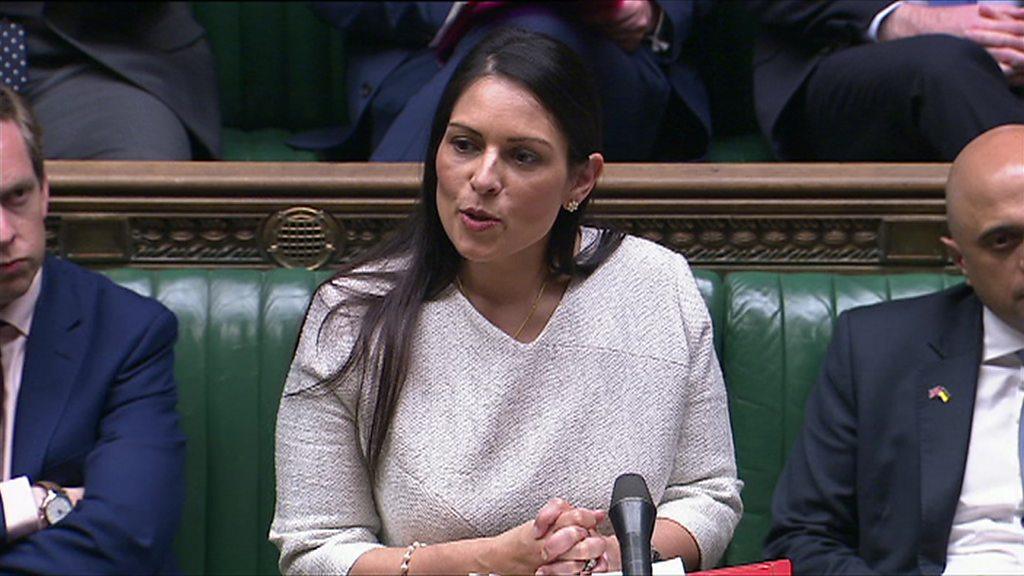
- Published19 April 2022
